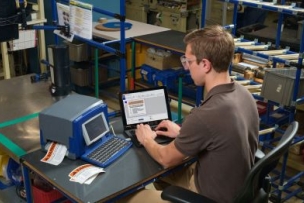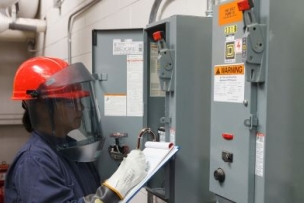These are six minimum protective measures that you’ll want to take to stay compliant with the OSHA machine guarding standard:
-
Prevent contact with dangerous moving parts.
-
Secure guards to prevent tampering and to withstand normal wear.
-
Ensure guards prevent falling objects from coming into contact with moving parts.
-
Avoid creating any new hazards by adding the guards.
-
Check that guards create no interference to machine use.
-
Allow for lubrication without removing the guards.
And don’t think that you’ll get away with this violation, because it will be easy for OSHA inspectors to spot, de Leon notes: The guards simply aren’t there.
Often there are machines sitting on shop floors, particularly older machines, that have no guards whatsoever, he says. In reality, it matters little whether a machine is old or new, the shop must take the lead in ensuring guards are in place and adjusted properly, de Leon says.
“Even when a machine includes adequate machine guards that meet OSHA’s regulatory requirements, those guards must be continually adjusted and inspected to ensure they maintain compliance,” explains a post on the Southern Metal Fabricators blog. “Again, that responsibility falls on the purchaser.”
As OSHA guidance notes, it’s necessary to uniquely craft and fit a guard. To that end, there are many guards and kits available to provide the ideal protection for the specific machine, job and user.
3 Machine Guarding Tips for Your Shop
“Each year, thousands of workers lose a limb in situations that are largely preventable,” points out risk control consultant Nick Rosseter.
Here are three things you can do to keep workers safe and avoid a costly OSHA fine.
Machine Guarding Tip 1: Educate Yourself and Your Workers (for Free)
A chief culprit is lack of awareness and training, de Leon says. Often, he finds that businesses simply do not know what is required.
When he finds the need is educational, de Leon often recommends that metalworking and manufacturing shops tap into free OSHA consultation services.
“Call OSHA yourself and have them help you become compliant,” de Leon says. “If you call them, they will come and do a survey and help you get your shop in compliance.”




